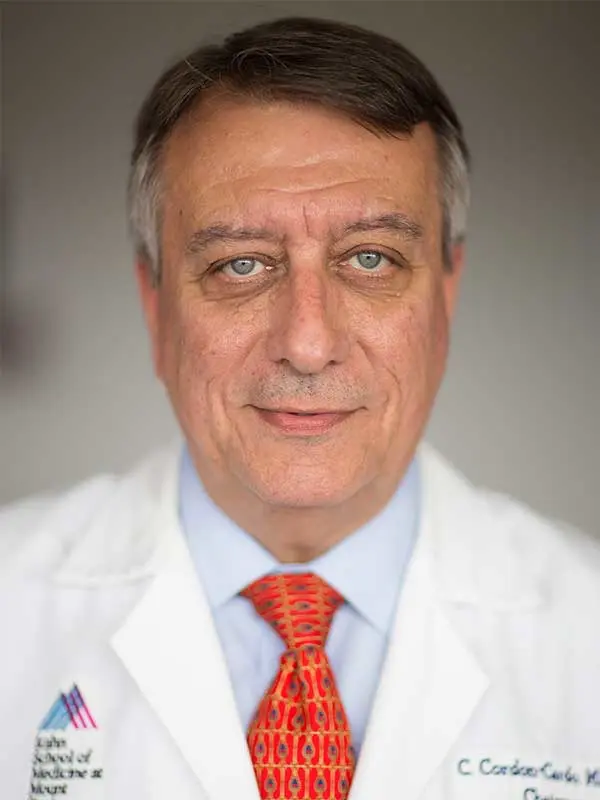Experts at the Mount Sinai Health System have created a road map for clinicians to follow when providing care to COVID-19 patients, which characterizes four distinct stages of the COVID-19 disease cycle and outlines specific testing and treatment protocols for them. The new approach—called staging—is featured in a recent issue of Cancer Cell and is modeled after the way in which cancer and other complex diseases, such as chronic renal disease, are managed.
“COVID-19 parallels other very difficult diseases in that it manifests specific clinical phases of progression,” says the study’s corresponding author, Carlos Cordon-Cardo, MD, PhD, the Irene Heinz Given and John LaPorte Given Professor and Chair in Pathology, Icahn School of Medicine at Mount Sinai. “In the absence of clear guidance we thought staging this disease could help physicians navigate better by linking the right tests to the most appropriate interventions. We want to give patients a better chance of being cured based on objective laboratory data and clinical information that is appropriate at different stages of the disease.”
The study lists stage 1 as viral entry; stage 2 as viral dissemination; stage 3 as multi-system inflammation (severe); and stage 4 as endothelial damage, thrombosis, and multi-organ dysfunction (critical), which affects a minority of patients. The study authors draw comparisons between the spread of the SARS-CoV-2 virus, which causes COVID-19, within the body, and the spread of cancer, which metastasizes throughout the body—both resulting from disease-producing agents that create a cascade of dysfunction.
Staging requires knowing more about the patient than simply whether they tested positive or negative for COVID-19. Physicians, and the community at large, would benefit from tests that would also offer an indication of the level of viral particles affecting the patient, either high or low; since a patient with a high viral load and comorbidities such as advanced age, hypertension, diabetes, and coronary artery disease would be at higher risk for a poor prognosis.
“COVID-19 parallels other very difficult diseases in that it manifests specific clinical phases of progression.”
Carlos Cordon-Cardo, MD, PhD
Since the beginning of the pandemic, physicians have learned important lessons about giving treatments early in the disease cycle, when they are most effective. One example is convalescent plasma therapy, which is best given before the patient develops their own antibodies to COVID-19.
“Analogous to the way we treat cancer, COVID-19 treatments have to be adapted to the evolution of the disease,” says study author, Luis Isola, MD, Professor of Medicine (Hematology and Medical Oncology), and Pediatrics, Icahn School of Medicine at Mount Sinai. “Treatments that may be effective early on no longer impact late disease. Conversely, treatments that help patients with advanced disease may not help or be justifiable when they present with it.”
The study’s authors say it is important to have a systematic approach to COVID-19 diagnostics and treatments that would keep the disease from progressing in those who might develop severe cases. “The idea is for us to provide guidelines for people to understand that this is not a simple disease, but one that is more complex,” says Dr. Cordon-Cardo.
In May, Mount Sinai released an autopsy study of 67 individuals with COVID-19 who had been admitted to one of the Health System’s eight hospitals from March 20 to April 29. The study showed the degree to which COVID-19 can lead to excessive blood clots and multi-organ failure.
David Reich, MD, President of The Mount Sinai Hospital and Mount Sinai Queens, and one of the study’s authors, says, “We learned a huge amount from the autopsy and innovative laboratory data collected from the very large number of COVID-19 patients cared for in the Mount Sinai Health System. Synthesizing all of these data led to this staging concept that has the potential to help clinicians worldwide in their understanding of the stages of this disease and in guiding the appropriate use of emerging therapies.”
Mount Sinai’s road map would also help COVID-19 patients understand the state of their own health during the disease cycle. Cancer patients at stage 2, for example, understand the course of their disease will be easier than it would be at stage 3 or 4 when they would require more aggressive treatments. The same holds true for COVID-19.
Featured

Carlos Cordon-Cardo, MD, PhD
Irene Heinz Given and John LaPorte Given Professor and Chair in Pathology

Luis Isola, MD
Professor of Medicine (Hematology and Medical Oncology), and Pediatrics

David L. Reich, MD
President of The Mount Sinai Hospital and Mount Sinai Queens
